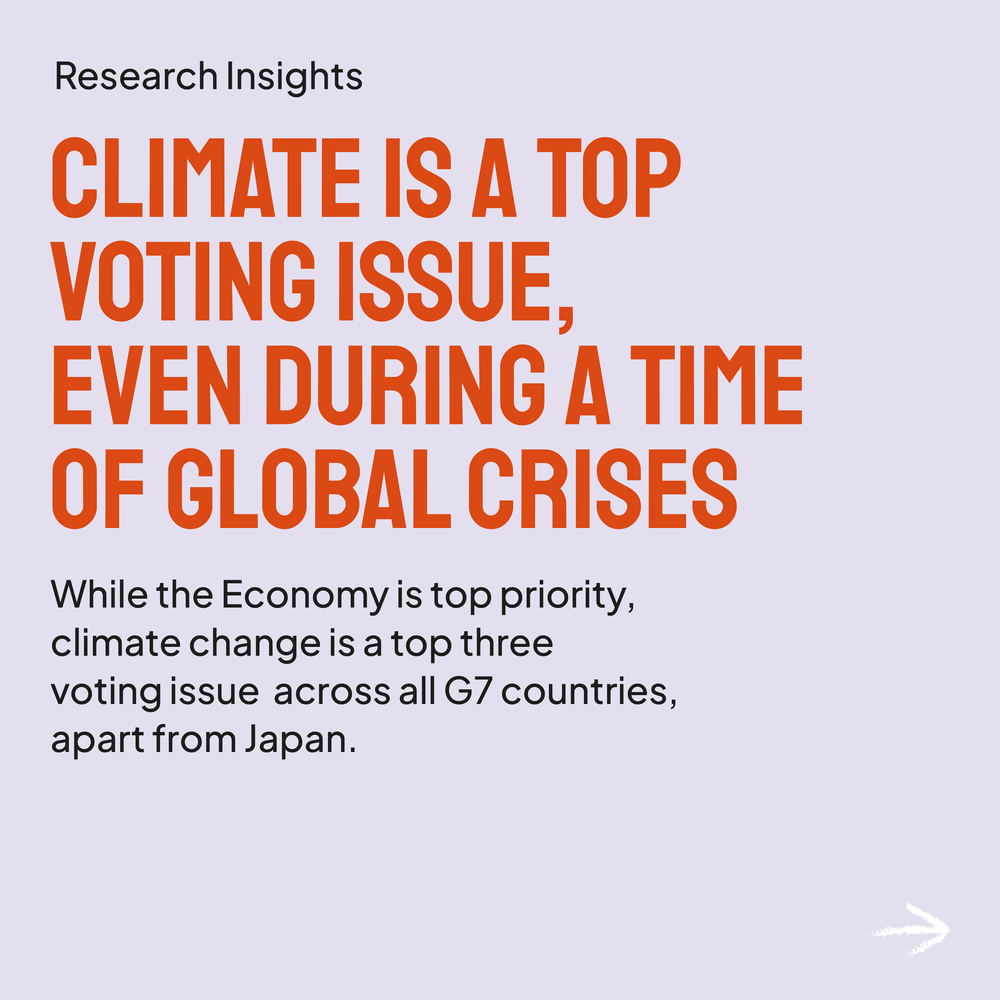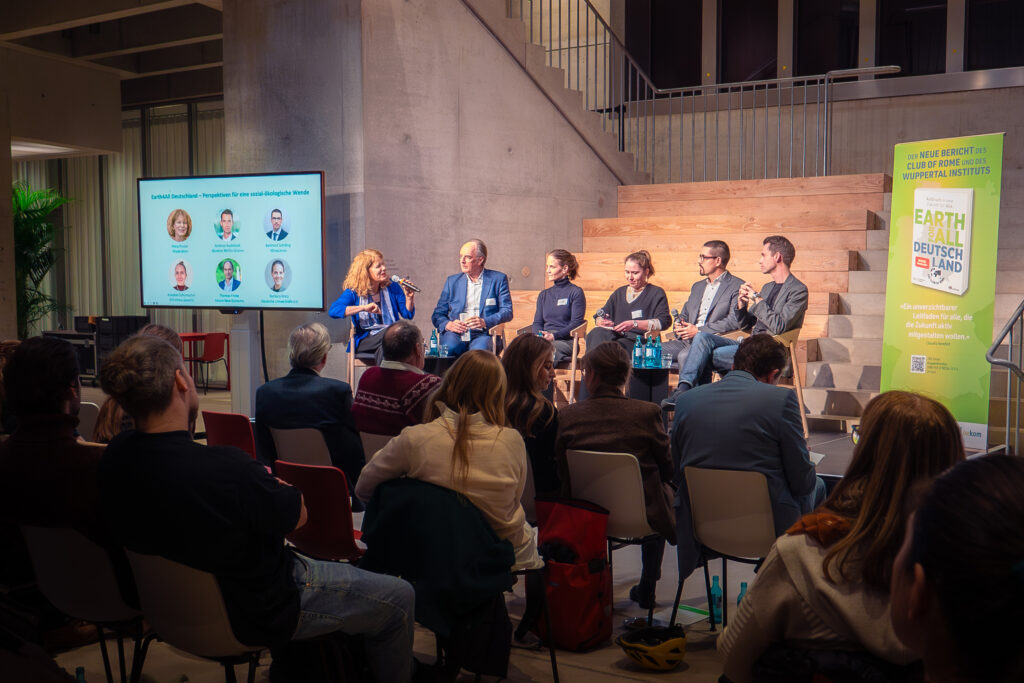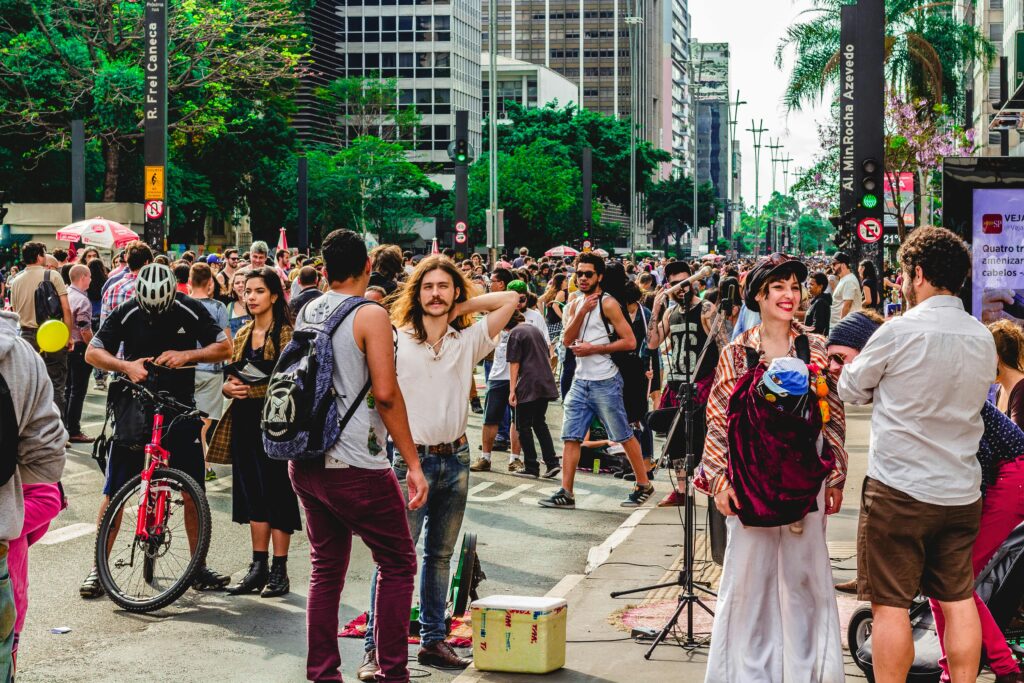
The climate crisis is a greater concern than the cost of living or an increase in armed conflicts across the G7 group of industrial nations, according to major new research.
Despite the threat of recession and facing steep rises in the cost of food and heating, a majority of voters say that governments should be investing more in measures to tackle climate change.
The research makes clear that climate is a top three voting issue across all G7 countries apart from Japan, cutting across demographics. Challenging popular opinion, it is important to the centre right swing voters who often hold the keys to election success or failure.
Respondents also recognise that people in poorest countries will face the greatest harm from climate change and 65% believe that richer countries need to bear a larger part of the cost when it comes to funding climate action, with only 11% disagreeing. Notable as COP27 gets underway with a multitude of global calls to scale-up international finance for the climate frontlines.
Nine out of ten G7 citizens believe they will be harmed in some way by climate change. When individuals were asked how they will be impacted personally, 61% said rising food costs, 55% said higher energy costs and 43% said increased risk of droughts and wildfires – closely followed by 42% saying increasing chance of extreme weather events in my area. Only 8% of people living in G7 nations said they did not think that the climate crisis would affect them personally.
There is overwhelming public support for nations to spend more GDP on helping other countries tackle climate change than is currently spent on military and defence budgets. On average, voters want governments to spend 3.2% of GDP on tackling climate change and 3.1% on alleviating poverty and hunger, compared to 2% on defence. Support for investment in tackling climate change was highest in Germany, France and the USA at 3.6%, 3.5% and 3.3% of GDP respectively, and lowest in Japan at 2.4% of GDP.
More than 50% of respondents said they believe we need to fundamentally change the way our economy works to solve global crises like climate change, cost of living and equitable global development.
Sandrine Dixson-Declève, Co-President of the Club of Rome and a leading global voice on creation of a sustainable economy, said:
“This research comes at a critical time as COP27 gets underway and political leaders face up to the reality that international finance for countries on the climate frontline has to scale up.
“Investment in climate is not something that can be ignored. The public understand this and they want to see action today; governments who don’t deliver will find themselves in danger of extinction.”
The research identifies two influential and persuadable groups of people with centre and centre-right political views who are open to voices from both sides of the political spectrum and are not opposed to investing in climate and development. These ‘silent deciders’, also described as Soft Right and Middle-Class Moderates, carry significant weight in domestic politics.
Sandrine Dixson-Declève said:
“As political leaders meet at COP27 and the following G20, it will be tempting for many to delay decisions on climate under the guise of focusing on ‘more pressing’ issues, such as energy prices and food security. What we need is real systems change and concrete action to address the compound effects of the multiple crises. As outlined in Earth4All, we cannot address climate without addressing poverty and inequality, but most importantly people want change and governments need to act.
“But this is not what these silent deciders want. They recognise that rising food and energy costs are directly linked to climate change. The reality is that any attempt to gaslight their concerns will harm political leaders at the ballot box.”
The research was conducted by Stack Data Strategy in August 2022 and was supported by focus group work and analysis. It is published as world leaders gather in Egypt for COP27, hoping to restore momentum to global efforts to address the climate crisis.



